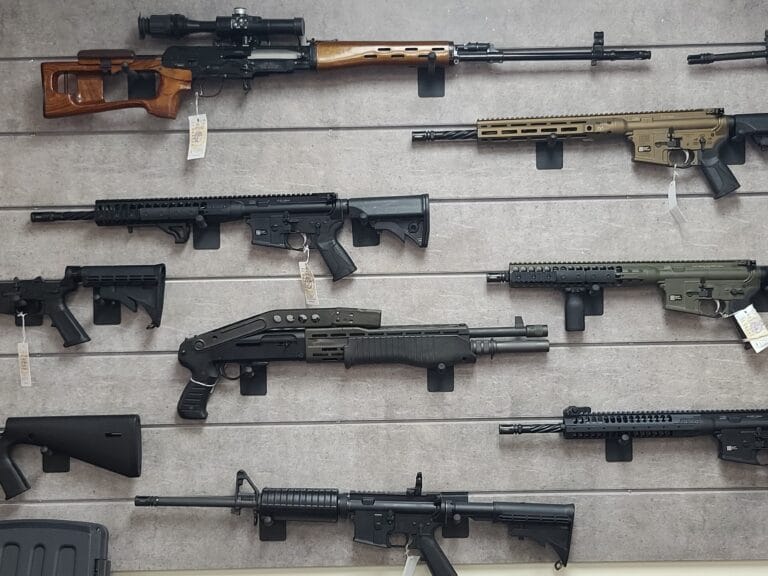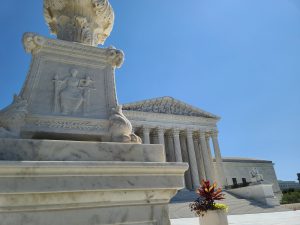It was with great interest that both gun-rights and gun-control proponents watched as Colorado became the first state in the nation to broadly repeal state preemption over gun regulation in 2021.
The impetus for the move was simple. Despite Colorado trending blue in recent years, gun control remains a politically perilous issue at the state level, particularly when it comes to aggressive policies like categorical weapon bans. By repealing state preemption, cities and counties in more liberal regions of the state would be free to shoot for the stars when pursuing new gun-control laws.
And that’s exactly what happened. Since last year’s preemption repeal, the City of Denver has been able to ban “ghost guns” and restrict which areas even licensed carriers can go. Additionally, four cities in Boulder County—Boulder, Louisville, Superior, and Lafayette—plus the County itself have all passed a broad array of gun restrictions that go far beyond what the state has imposed.
Enter the Supreme Court.
The Bruen decision not only struck down New York’s subjective and restrictive policy for gun-carry permitting, it also established a new test for evaluating the constitutionality of gun-control laws. It’s one that most experts agree casts doubt on the viability of many modern restrictions, including “assault weapon” and ammunition magazine bans. And it’s already starting to have that effect on aggressive localities in Colorado.
Just last month, a federal court judge granted a temporary restraining order against the town of Superior over its recently passed assault weapon and magazine ban.
“The conduct regulated by this provision of the Amended Code, the right to possess, sell, or transfer illegal weapons, (which, as defined, include weapons commonly used by law-abiding citizens for lawful purposes), is covered, at least in part, by the Second Amendment, and therefore that conduct is presumptively protected,” U.S. District Judge Raymond Moore, an Obama appointee, wrote in his opinion. “The Court is sympathetic to the Town’s stated reasoning. However, the Court is unaware of historical precedent that would permit a governmental entity to entirely ban a type of weapon that is commonly used by law-abiding citizens for lawful purposes, whether in an individual’s home or in public.”
Since that ruling, gun-rights activists have filed three new lawsuits against the Cities of Boulder and Louisville as well as the government of Boulder County over nearly identical bans. Given the recent success in Superior, where a judge found that the challenge to the bans had a “strong likelihood” of success on the merits, those suits have a good shot at being successful as well. That could have a major chilling effect on the momentum that has been building behind localities passing gun control around the state and across the country. It’s certainly the effect gun-rights advocates are going for.
“Last month, we promised our members we would sue over these unconstitutional gun control laws, and today we are making good on our promises,” Taylor Rhodes, Executive Director of Rocky Mountain Gun Owners (RMGO), said in a press release. “Again, it doesn’t matter how big or how small the localities are — if you pass unconstitutional gun control, we will sue you. RMGO is proud to have filed the first two post-Bruen cases in America and based on our early success against the Town of Superior, the floodgates are open.”
The entire rationale behind the preemption repeal was to allow liberal-leaning cities to enact stricter gun control than is politically feasible at the state level without being encumbered by the courts. With lower courts now under a new mandate for reviewing gun cases from the Supreme Court, that rationale is not as viable. In turn, other states that once looked on with curiosity at Colorado’s preemption experiment may not be as inclined to follow its lead if it turns out not to be as efficacious at achieving local gun control as its proponents originally hoped.
To be sure, it’s still far too early to tell how courts will continue to apply the Bruen test to cases arising over local gun laws. Other federal court rulings have demonstrated how judges can use the test to uphold even the youngest and most novel restrictions when they want to. That could be enough to give gun-control proponents renewed hope for the strategy.
But if the experience in court is anything like that of the case in Superior, state preemption law repeals, long a bugaboo of gun-control advocates, may not be as potent a weapon as they once seemed.






